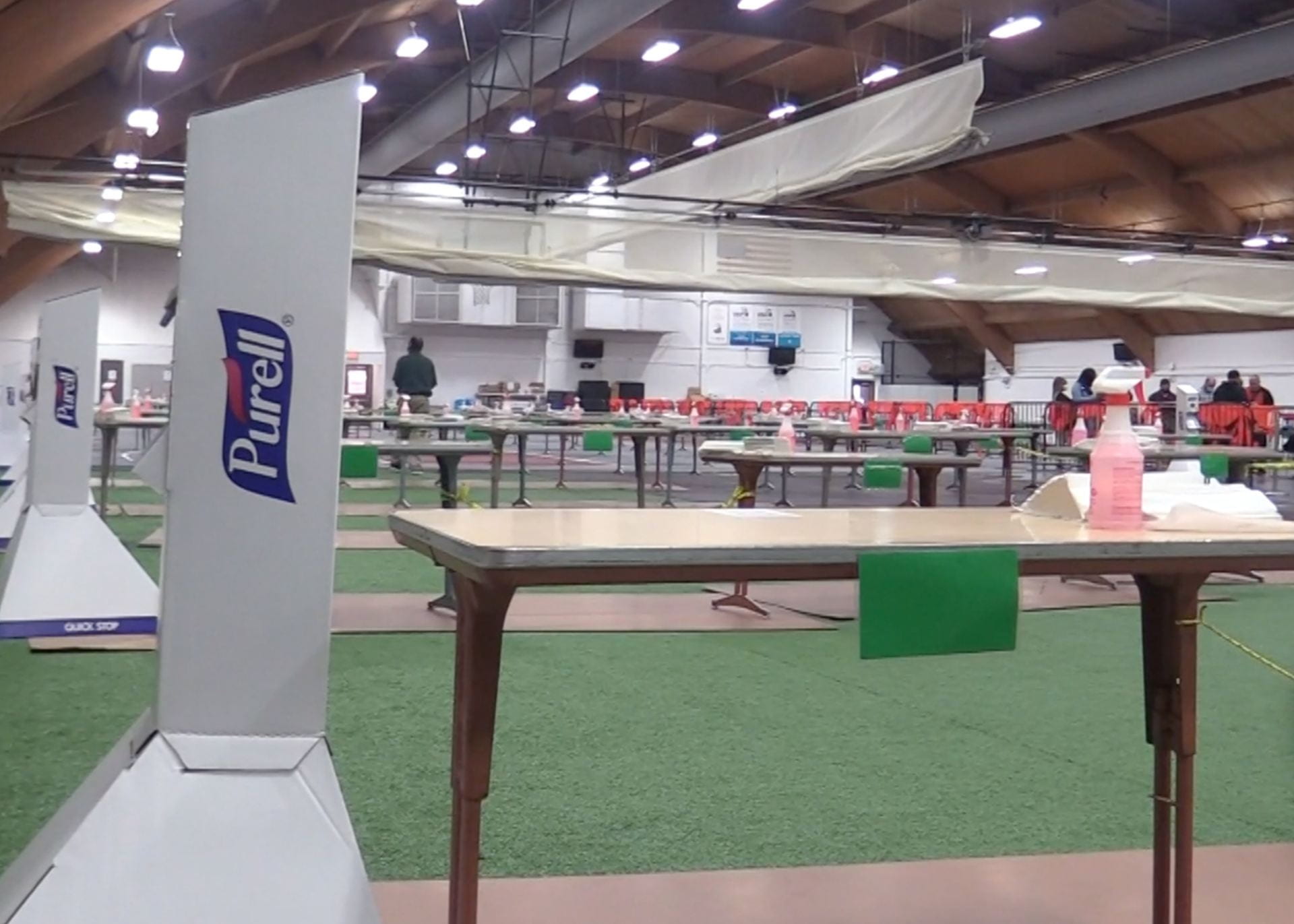
The Jesse Owens North Recreation Center is set up to allow for around 100 new randomly selected students to take a COVID test every 15 minutes. Credit: Owen Milnes | Campus producer
Vests, surgical masks, gloves and face shields aren’t typical workplace attire for TAs, but for student testing assistants helping seal tubes of spit, “typical” isn’t in the job description.
For Regina Tamayo, a fifth-year in chemical engineering, this has been her normal since the end of August. Tamayo is a student testing assistant working in the Jesse Owens North Recreation Center. Her job is to walk around the testing floor and ensure students correctly self-administer COVID-19 saliva tests.
Tamayo said she applied for the job after her academic adviser sent an email about it, asking for students with pipetting experience. A pipette is a dropper-like instrument used in laboratories.
“I had taken a bio course a couple years ago, and I’ve done some research stuff, so I was like, ‘Oh, that would be fine,’” Tamayo said.
She said the job ended up being markedly different from what was advertised — she said it described more like “customer service” than a lab position — but she enjoys the work anyway.
Tamayo is part of a team of about 80 students working at JO North, the COVID-19 testing hub for randomly selected off-campus students. Joanne Munshower, a third-year in marketing and a student testing assistant, said that since she started, testing capabilities have expanded at the location by about 1,000 students per day.
“They do about 4,500 a day, and that’s between 8 a.m. and 6 p.m.,” Munshower said.
Kyle Prete, a fifth-year in biology and another student testing assistant at JO North, said his role is to get students signed in and ready with their kits as smoothly as possible. Prete said testing assistants don’t play any part in the actual collection of samples; instead, they answer questions students have during the test and guide them through the process — specifically, checking that students fill vials with enough saliva.
“Our job is also just to make sure they hit that line, and once they do, then we help them finish it up,” Prete said. “All the finishing process looks like is putting this cap on that has a liquid preservative in it, and they finish the steps on their phone.”
After students seal their vials, they toss samples in a biohazard bin on their way out of the testing center. Prete said those samples are sent straight to New Jersey overnight to be tested by testing company Vault.
All student testing assistants undergo an hour-long training during which they run through a typical shift, Prete said. He said students shadow employees from Drug Free Sport, an organization that typically facilitates drug tests for athletes but now administers COVID-19 tests.
At the end of training, Prete said new student testing assistants schedule their first shifts.
During shifts, Tamayo said assistants wear gloves, masks, face shields and vests to avoid coming in contact with the coronavirus. When it comes to being tested themselves, however, Prete, Tamayo and Munshower said there is no protocol beyond random selection.
“Even though we’re testing assistants and there on a weekly basis, we technically aren’t required to test every week,” Prete said.
Tamayo said her supervisors gave her the option to get tested after shifts, but it is not required.
Despite the uncommon nature of the position, Munshower, Prete and Tamayo said they were glad they applied.
“If we can be a warm, welcoming face to them, that’s something that we pride ourselves on, aside from just helping them complete the steps of their test,” Munshower said.


